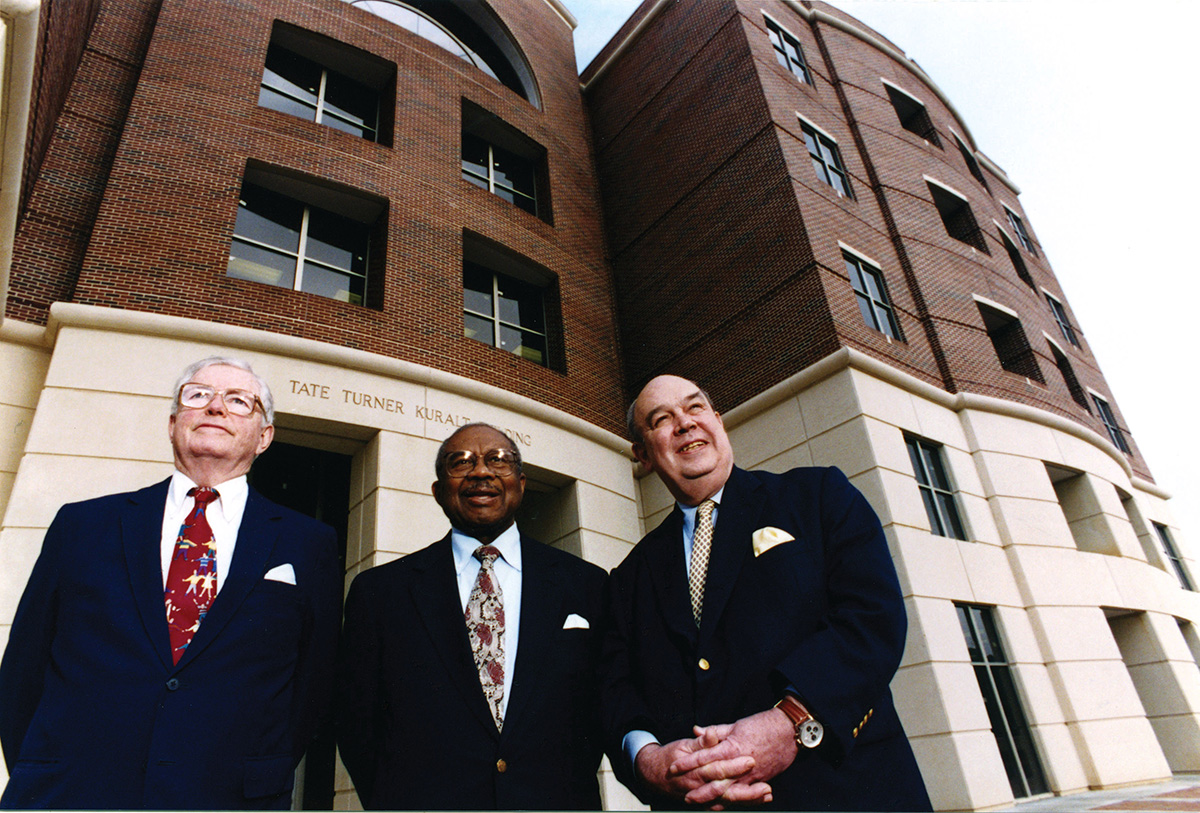100 years of impact
The UNC School of Social Work has witnessed significant growth and achievement during its more than 100 years as one of the nation’s leading schools of social work.

More than 100 years ago, North Carolina lawmakers faced perhaps one of the most important decisions of their time. Following the end of World War I, the U.S. economy was on the verge of expanding rapidly and, along with it, American wealth. But in the South, the narrative was a bit more complicated.
In North Carolina, more than 75% of residents lived in rural areas, and most were farmers who were facing the nation’s rapid shift from agriculture to manufacturing. For these families, many of whom already lived in homes without running water, electricity or indoor bathrooms and whose children were out of school by the fifth or sixth grade, the struggle to eke out a living was becoming even more challenging.
Understanding that the state’s overall success depended on the well-being of all of its residents, including its poorest, North Carolina’s General Assembly forged a plan in 1919 to establish a statewide system of public welfare. This system would deploy trained welfare workers and superintendents to all 100 counties, with a focus on strengthening services and the livelihoods of children, families and communities across the state.
A year later, this plan would crystallize with the partnership of University of North Carolina President Harry Woodburn Chase. Like state lawmakers, Chase was well aware of the ramifications of ignoring the needs of rural communities. Moreover, Chase believed the University had a moral and civic responsibility to address the social problems of the time. With Chase’s full support and in cooperation with the N.C. Department of Charities and Public Welfare and the American Red Cross, the University launched its School of Public Welfare in 1920.
The mission at the time, according to state historical records: to educate and develop a clinical workforce of “country social workers,” individuals trained with the hard and soft skills to work in the rural South. Sociologist and Kenan Distinguished Professor Howard W. Odum, who specialized in the social problems of the southern United States, was tapped as the School’s first dean and guided its growth for the first decade.
Over the following 30 years, the school’s name evolved several more times before officially becoming UNC School of Social Work in 1950. Although initially founded as a training program for largely inexperienced public welfare workers, the school gradually grounded its expertise in social work practice across a range of fields, including health, mental health, community practice, administration and policy practice.

Businessman Jack Tate, former School of Social Work dean John Turner and
journalist Charles Kuralt at the Tate-Turner-Kuralt Building’s dedication in 1996. (Photo courtesy UNC School of Social Work)
The decision to build a research program in the mid to late 1980s solidified the school’s rise to national attention as social work research faculty came to introduce the production of and use of empirical evidence in practice settings. These early researchers helped to transform the School’s curriculum and lay the groundwork for additional partnerships to address some of North Carolina’s most pressing social and economic problems, including violence prevention, substance use, and care for the aging. They also initiated the path forward for a new Ph.D. program that, for the last 30 years, has produced preeminent social work scholars who embrace cutting-edge research design to improve practice and advance social interventions.
The journey to become one of the nation’s best social work schools has, like most historical narratives, included ups and downs. The 1995 completion of the School’s $10 million building certainly deserves mention. After years of bouncing around different spaces on campus, the School moved into its new 75,000-square-foot building, which finally gave the program the long-awaited physical presence and the national clout to attract top-dollar donations and top-notch students and faculty.
Other historic milestones include the appointments of social work professor Hortense McClinton, UNC-Chapel Hill’s first Black faculty member, in 1966; School of Social Work Dean John Turner, UNC-Chapel Hill’s first Black dean, in 1981; Kimberly Strom, the School of Social Work’s first female (interim) dean in 2000; Travis Albritton, the School of Social Work’s first associate dean for diversity, equity and inclusion, in 2018; Mimi Chapman, the School’s first professor to receive the Edward Kidder Graham Faculty Service Award in 2016 and the first social work professor elected faculty chair in 2020 and Dean Ramona Denby-Brinson, the School of Social Work’s first Black female dean, in 2021.
Still, as former Dean Gary Bowen noted in a message to students, faculty and staff in June 2020, the school has fallen short in realizing its commitment to racial justice and to dismantling structural racism. Even after 100 years of historic growth, professors and students of color continue to remind our School that much more work is needed to identify and address internal legacy systems that have created and maintained patterns of oppression. These systems have prevented faculty, students and staff of color from sharing their voices and having access to resources and opportunities of all kinds. Collective efforts to reshape the school in more equitable ways began in earnest last year and will continue for the foreseeable future.
Ultimately, social workers are driven by a passion and commitment to do good. So, for every accomplishment achieved over the last 100 years, there will no doubt be many more to come, said Dean Denby-Brinson.
“UNC School of Social Work has been at the heart of advancing the profession of social work. We have blazed new trails and, in partnership with many, we have accomplished so much. What excites me now is the story that will be written about the next 100 years. What will social workers of the future say about this time? What will be the meaning and impact of our work? It is now our time to lead the profession. We can create the future we want to see. Let us do so driven by our values, courage, and conviction.”




